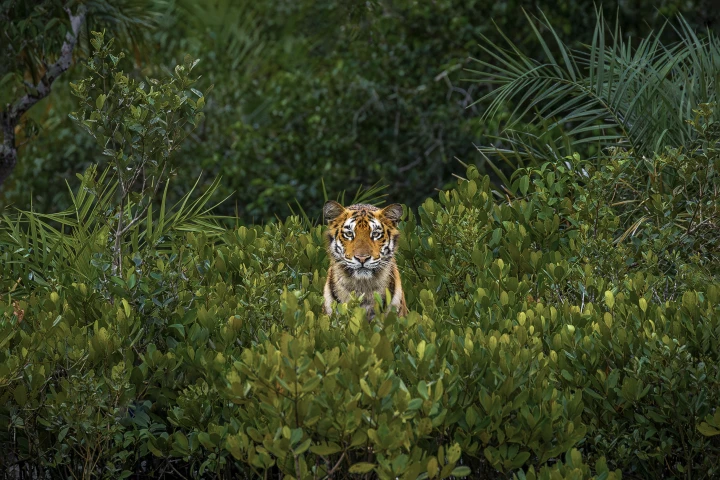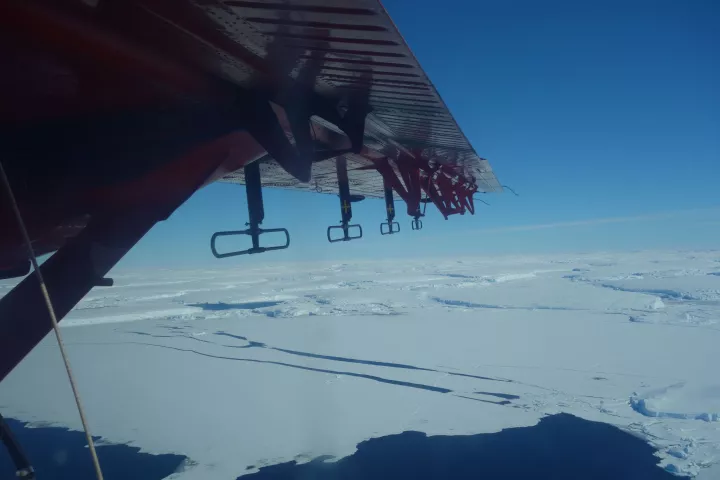Sea-level rise
-
Mangroves may not be the first thing that comes to mind when you think of a forest, but they're both incredible, unique ecosystems and serve as a structural and water-cleaning coastguard. These photos capture the wondrous, otherworldly ecosystems.
-
A team from the British Antarctic Survey has completed the first map of the ground beneath West Antarctica's Doomsday Glacier, which is the size of Great Britain and could raise global sea levels by 65 cm (25 in) in the coming centuries as it melts.
-
Meltwater is falling to the base of the Greenland Ice Sheet with such force, the power produced is comparable to that generated by the world's largest hydroelectric power station, creating a melting effect at the bottom that is "completely unprecedented."
-
Tracking the changes to huge masses of ice is key to understanding the effects of climate change on the planet, and a researchers in Greenland have developed a new tool that takes the accuracy of such measurements to unprecedented levels.
-
A new study has revealed that Earth’s glaciers have lost a staggering amount of ice over the last two decades, and the rate of loss is accelerating. The global effort used satellite data to track the deteriorating condition of some 220,000 glaciers.
-
A study claims that in the next 80 years, the global land area exposed to coastal flooding as a result of climate change is set to increase by roughly 50 percent. The rise could threaten tens of millions of people, and up to 20 percent of global GPD.
-
A comprehensive new study has tracked long-term ice loss in Greenland, and found that the Ice Sheet has lost 3.8 trillion tonnes of ice since 1992 – and the annual rate is rising faster than previously expected.
-
A vital section of the world's largest ice shelf is losing ice 10 times faster than the overall melt rate for the structure, posing a potential risk to its future stability. The Ross Ice Shelf stretches out over 500,809 square km, and accounts for 32 percent of Antarctica's total ice shelf area.
-
A newly published special report from the Intergovernmental Panel on Climate Change (IPCC) warns that humanity must make rapid and unprecedented changes to all facets of society if it is to limit global warming to 1.5°C, and so mitigate the potentially devastating effects of global warming.
-
NASA is preparing to launch a new tool into orbit that will bounce lasers off polar ice to finely monitor elevation changes over time, providing new insights into not only the severity of climate change, but how it is directly impacting seal level rise.
-
Many consequences of climate change can be imperceptible, but others can catch our eye in the most dramatic of ways. One such example is a monumental chunk of ice breaking off a glacier and washing into sea, something dramatically captured on video by scientists in eastern Greenland last week.










